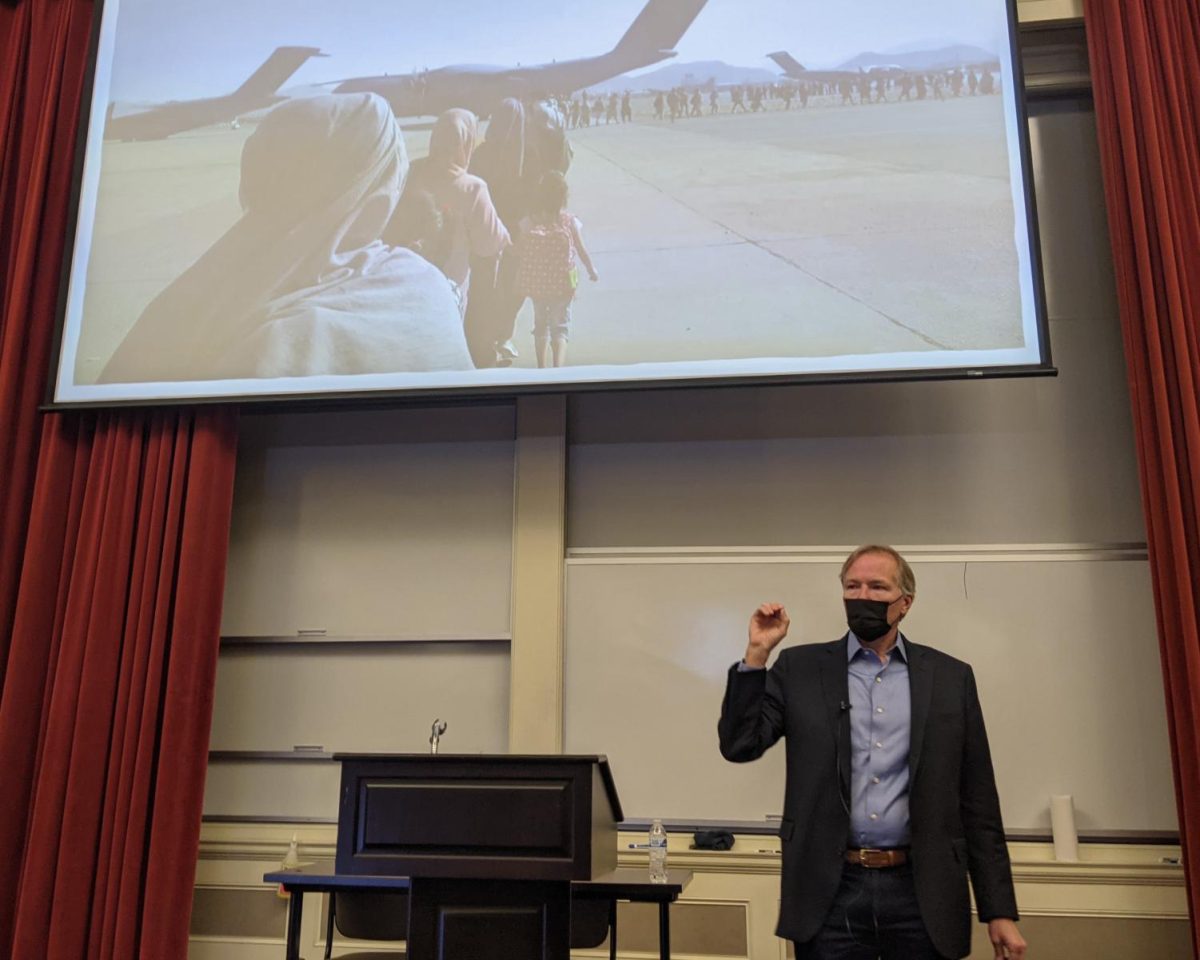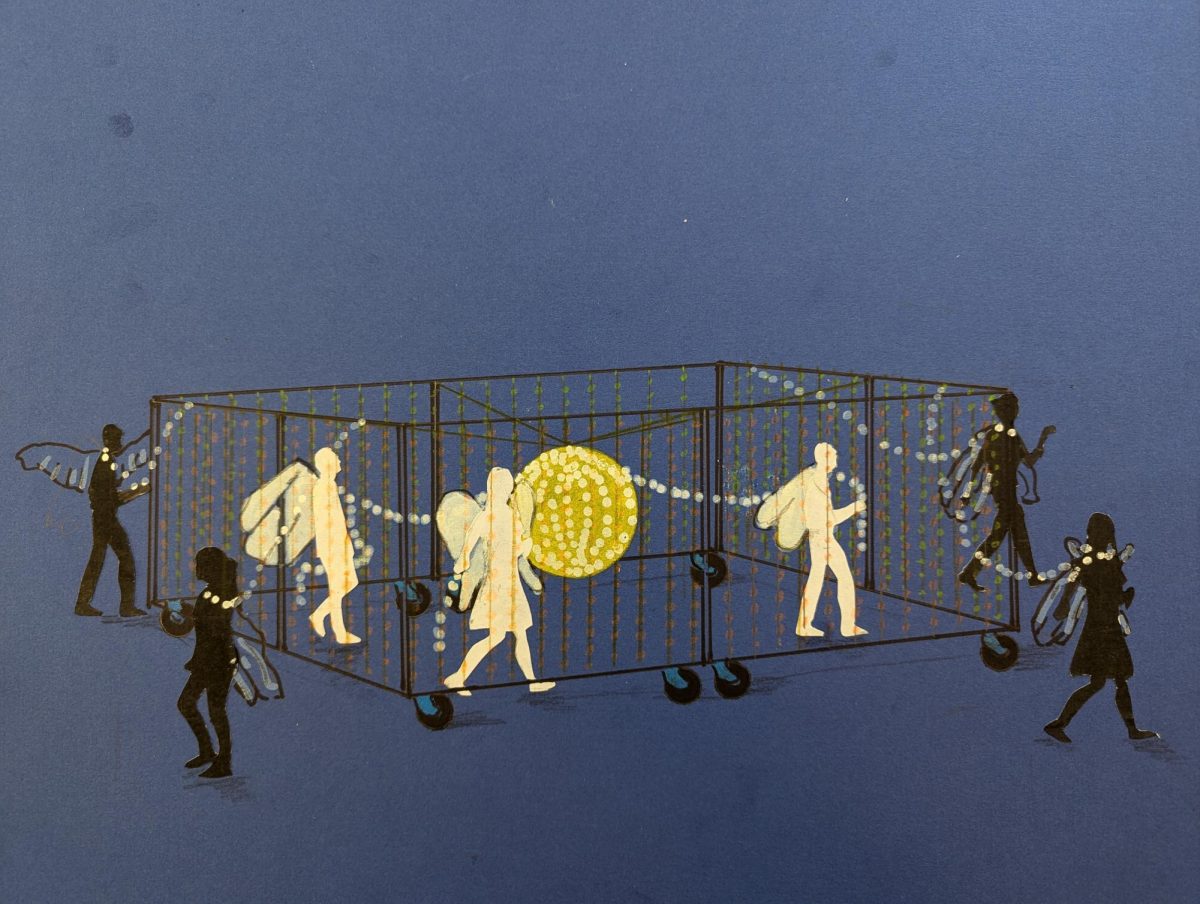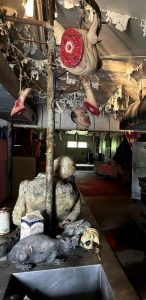Columbia journalism dean analyzes U.S. involvement in Afghanistan
Steve Coll, author of books about the U.S. involvement in Afghanistan, says the U.S. shares blame for the Taliban takeover in Afghanistan.
November 5, 2021
Two-time Pulitzer Prize-winning author and dean of the Graduate School of Journalism at Columbia University, Steve Coll, critiqued the 20-year U.S. involvement in, and the withdrawal, from Afghanistan, Monday night in Miami University’s Taylor Auditorium.
Coll was a guest lecturer for Miami’s Grayson Kirk Distinguished Lecture Series sponsored by the university’s international studies program and the Department of Global and Intercultural Studies.
In 2004, Coll authored the book, “Ghost Wars: The Secret history of the CIA, Afghanistan and Bin Laden, from the Soviet invasion to September 10, 2001.” It won the 2005 Pulitzer Prize for general non-fiction. He followed that in 2008 with “The Bin Ladens: An Arabian Family in the American Century.”
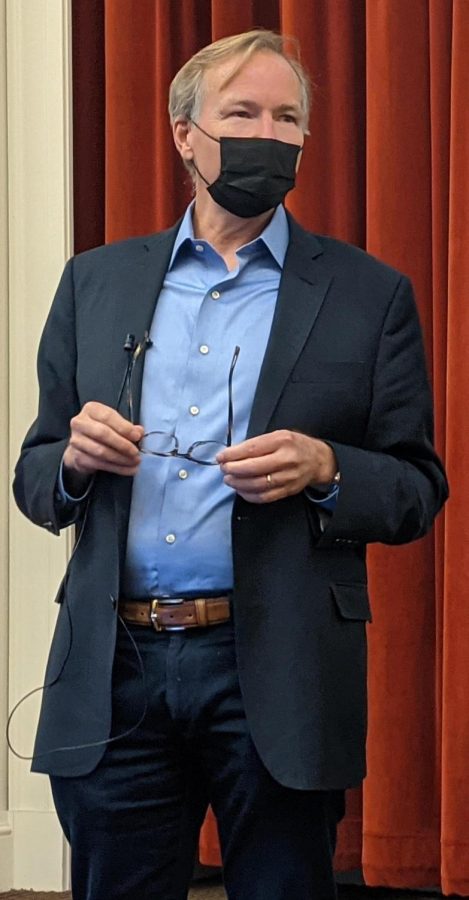
In Monday’s lecture, Coll contextualized the Afghanistan War around four, “often confused” narratives: war aims, war tactics, peace talks and the withdrawal. Coll described the reasons that the U.S. invaded Afghanistan in 2001. After the Sept. 11 attacks in 2001, the U.S wanted to acquire Osama bin Laden, the leader of al-Qaeda and the orchestrator of the attacks. Bin Laden, a Saudi, had established his base in Afghanistan.
The U.S. initially did not want to engage with the Taliban, the ruling power in Afghanistan at the time, which was harboring bin Laden. However, the Taliban did not want to engage with al-Qaeda and refused to hand over Bin Laden to the U.S., prompting the U.S. to invade Afghanistan.
Coll emphasized that Afghanistan was a flourishing, multicultural society that existed before the war. The idea that “there was no Afghanistan” until the U.S. came in 2001 and rescued it, is a misconception. The conflict in Afghanistan wasn’t started by Afghans, it was started by outside invasions and exacerbated by outside interference, he said.
Coll also noted that while the Taliban and al-Qaeda were not exclusively in Afghanistan. The Taliban headquarters, at the time, was in Pakistan. Al-Qaeda was based in Afghanistan but had people in Pakistan as well. The U.S. did not invade Pakistan because of Pakistan’s nuclear weapons program, Coll said.
No one really won the war, said Coll. He characterized the 20-year war – the longest in U.S. history — as asymmetric. An asymmetric war is when different sides of a conflict fight with significantly different methods of warfare and have different goals for the outcome. Although the U.S. pushed the Taliban out of power, America never had any significant territorial control over Afghanistan during its time there. Despite not losing, the U.S. suffered heavy losses in other ways, Coll said. He cited the incredibly high cost and casualties, both Afghan soldiers and U.S. soldiers, as examples. In the end, war was a drawn-out stalemate, he said.
Coll criticized the process of negotiating peace and the U.S. exit. He said that the Taliban out-negotiated the U.S. Typically, peace talks aim for political stability, reduction of violence and a sustainable pathway to peace, he said. The peace talks that occurred in 2018 under the Trump Administration were primarily about pulling U.S. troops out of Afghanistan with no retaliation from the Taliban on their way out. The agreement prioritized U.S. military personnel and Americans in Afghanistan and did not prioritize the stability of Afghanistan and its people, he said.
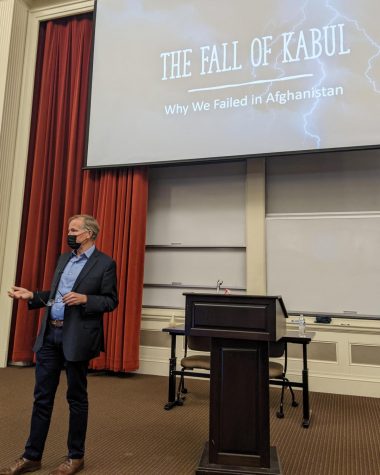
“It was very cynical, frankly,” said Coll. “A very cynical approach to the withdrawal out of Afghanistan and using the talks as a cover.”
The failures of the pullout began with the peace talks, he said. The execution of the pullout was messy. Airpower utilized by the U.S. forces was the primary obstacle keeping the Taliban out of power. When U.S. airpower wound down around the capital, Kabul, it caused a significant decrease in defense of the city and allowed them to take control of Kabul before the evacuation was completed.
“They stayed in the fight despite staggering loss,” said Coll with regard to Afghan soldiers who fought alongside the U.S. “Afghans fought and died for their country before this summer.”
However, by that time, the people of Afghanistan already recalculated their options without U.S. support and decided that preemptive surrender to the Taliban was the safer option, he said. Despite the widespread surrender to the Taliban, he cautioned against the belief that the Afghan people just gave up and said that we shouldn’t blame them for U.S. shortcomings. He suggests that the U.S think about its own contributions to the conflict.
“It’s easy politics to say we should never have gone,” said Coll. “But to suggest that therefore (we) shouldn’t be animated by a sense of concern and recognition of our self interest in the suffering of others outside of the United States is the wrong thing to take away.”


